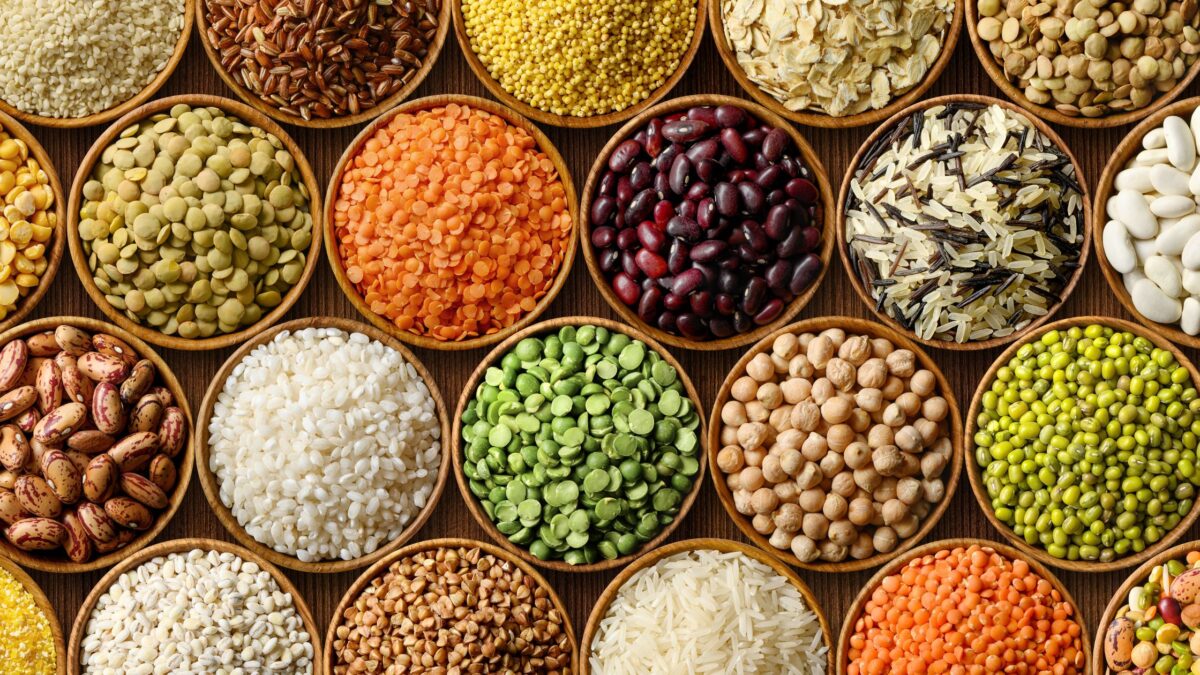


Medically Reviewed By Margaret Etudo. Written By The Vitamins For Woman Team.
Navigating menopause can feel overwhelming, but nature has some answers. One powerful ally? Phytoestrogens for menopause—plant-based compounds that mimic estrogen in the body.

Menopause marks a major hormonal shift in a woman’s life, often bringing a host of uncomfortable symptoms—hot flashes, night sweats, mood swings, and more.
While hormone replacement therapy (HRT) is one solution, many women are turning to more natural methods. Enter phytoestrogens—compounds found in plants that mimic the effects of estrogen in your body.
In this post, we’ll explore Phytoestrogens for menopause, how they can ease menopause symptoms, the top foods and supplements to try, and what you need to know before adding them to your routine.
Phytoestrogens are naturally occurring plant compounds that are structurally similar to the hormone estrogen. Because of this, they can bind to estrogen receptors in the body, sometimes boosting and other times blocking estrogen activity depending on what’s needed.
The most common types of phytoestrogens include:
These plant estrogens have been widely studied for their role in easing menopausal symptoms, improving bone health, and even supporting heart function.
Before diving into the top foods, it’s important to note that your diet plays a powerful role in hormone regulation. By including phytoestrogen-rich foods regularly, you can support your body’s natural ability to manage estrogen fluctuations.
Here are seven of the best phytoestrogen for menopause rich foods
Soy is rich in isoflavones, which are the most potent and well-researched phytoestrogens. These foods are easy to add to stir-fries, salads, or soups. Regular consumption has been linked to reduced hot flashes and better bone density.
Packed with lignans, flaxseeds help with hormone balance, digestion, and heart health. Just 1–2 tablespoons a day (ground, for better absorption) can support estrogen levels and reduce inflammation.
Red clover contains high levels of isoflavones, similar to soy, and has been used traditionally to reduce hot flashes and night sweats. You can consume it as a tea or in supplement form.
Sesame seeds are rich in phytoestrogens and calcium, making them great for supporting bone health during menopause. Add them to your meals or try tahini as a delicious and hormone-friendly spread.
Legumes contain coumestans and are rich in fiber, helping with hormonal detox. These budget-friendly foods are easy to incorporate into soups, salads, or stews and may also help balance blood sugar—important during menopause.
Alfalfa sprouts are another potent source of coumestans, a class of phytoestrogens. They’re light, crisp, and perfect as a topping on salads or sandwiches. Alfalfa has been linked to reduced menopausal discomfort and can also support digestion.
Dried fruits, especially apricots and prunes, contain lignans and other estrogenic compounds. A small handful a day offers a natural way to support hormonal balance while satisfying your sweet tooth with a nutrient-dense snack.
These plant-based compounds offer a more balanced and natural way to support hormone levels, without the intensity or risks of synthetic hormones. While they’re not a magic cure, they can ease the transition by gently mimicking estrogen’s effects in your body.
One of the most studied uses of Phytoestrogens for menopause is their effect on vasomotor symptoms like hot flashes and night sweats. Soy isoflavones, in particular, have shown promising results in reducing the frequency and severity of hot flashes, especially in women who don’t want to use HRT.
Hormonal fluctuations during menopause can significantly affect mood and mental well-being. Phytoestrogens may help stabilize estrogen levels enough to support neurotransmitter function, which can reduce irritability, anxiety, and depressive symptoms.
Declining estrogen levels can lead to bone loss and increased cardiovascular risk. Some Phytoestrogens for menopause, particularly lignans and isoflavones, may help reduce bone resorption and improve arterial elasticity, supporting long-term health.
If adding Phytoestrogens for menopause rich foods isn’t enough, supplements can offer a concentrated dose. Popular options include:
Research shows mixed results—some women experience significant relief from hot flashes and mood swings, while others notice little difference. This variation may be due to individual gut microbiome differences, which affect how the body converts plant estrogens.
Always consult your healthcare provider before starting any new supplement, especially if you have a history of hormone-sensitive conditions like breast cancer.
While phytoestrogens are generally safe for most people, there are a few things to keep in mind:
Moderation and medical guidance are key when using phytoestrogens for menopause support.
Some women notice improvements in hot flashes and mood within 4–8 weeks, while for others it may take up to 3 months. Consistency is important for best results.
Phytoestrogens are natural and generally lower-risk than HRT, but they may not be as potent. They’re a good option for women who can’t take or prefer to avoid hormone therapy.
Soy, flaxseeds, and red clover top the list thanks to their high isoflavone and lignan content. These options are backed by science and easy to include in daily life.
Phytoestrogens offer a natural, gentle approach to managing menopause symptoms like hot flashes, mood swings, and bone loss. Whether you’re in perimenopause, postmenopause, or somewhere in between, adding more plant-based estrogen sources to your routine can help ease the transition.
Always speak with your healthcare provider to determine what’s right for your body, and remember—small lifestyle shifts can create big hormonal harmony.

medically reviewed by margaret etudo, BPharm. written by the vitamins for woman team.